Only just over half of the 118 House seats are contested this year in Illinois’ state legislative districts. That level of gerrymandering isn’t healthy for democracy and leads to a General Assembly that tends to enact policies well to the left of the average Illinois voter.
Today, we begin our endorsements in the 59 races in which voters will have an actual choice.
District 2
This district covers southwest suburbs including portions of Stickney, Cicero, Brookfield, Riverside and Berwyn, as well as a slice of Chicago’s South Lawndale neighborhood. The incumbent is Democrat Lisa Hernandez, 61, who was first elected in 2007 and now doubles as chair of the Democratic Party of Illinois. Her challenger is Republican Laura Hruska, a member of the Riverside Brookfield High School District 208 board.
Hernandez has gone unchallenged since 2016. The district is overwhelmingly Democratic, so Hruska has an uphill battle. The top issue in the district, she says, is property taxes. She believes the state and municipalities need to do more to reduce the burden on homeowners. We appreciate that she’s opposed to allowing for assault-style weapons, a position most Republicans don’t hold.
Hernandez’s positions are well to the left of ours, exemplified by her sponsorship of state legislation to raise the minimum wage for tipped workers, which the restaurant industry opposes. We’re pleased voters have a choice, and we think Hruska’s focus on pocketbook issues is what Illinois Republicans ought to be emphasizing.
Laura Hruska has our endorsement.
District 5
This is an oddly shaped district mainly encompassing South Side neighborhoods like Woodlawn, Washington Park and Englewood but also including parts of the South Loop and even River North. Incumbent Democrat Kimberly du Buclet was appointed to the seat by Cook County Democrats, replacing Lamont Robinson after he was elected 4th Ward alderman. Her opponent is Republican Al Rasho, who owns his own limousine business.
Du Buclet is a former Metropolitan Water Reclamation District commissioner and has earned a reputation as a thoughtful local politician. She is a better choice for this district than Rasho, whose primary policy position is reducing the state’s income tax.
Kimberly du Buclet is endorsed.
District 6
The heart of this South Side district is Englewood, West Englewood and Chicago Lawn, but it also touches areas to the north like Back of the Yards and Bridgeport. Incumbent Democrat Sonya Harper has held the seat since 2015 and co-chairs the Illinois Legislative Black Caucus. Challenging her is Republican Sean Dwyer, 58, for much of his career a real estate-focused asset manager and now CEO of education-curriculum developer Global Educational Resources.
A Hyde Park native and former Democrat who says he’s running as a Republican in the mold of Colin Powell and John McCain, Dwyer is focused on education in Chicago. He supports bringing back Invest in Kids, the lapsed program that provided financial assistance for low-income students attending private school. He believes Chicago Public Schools is adequately funded now and opposes the Chicago Teachers Union’s demands for more state funding of CPS.
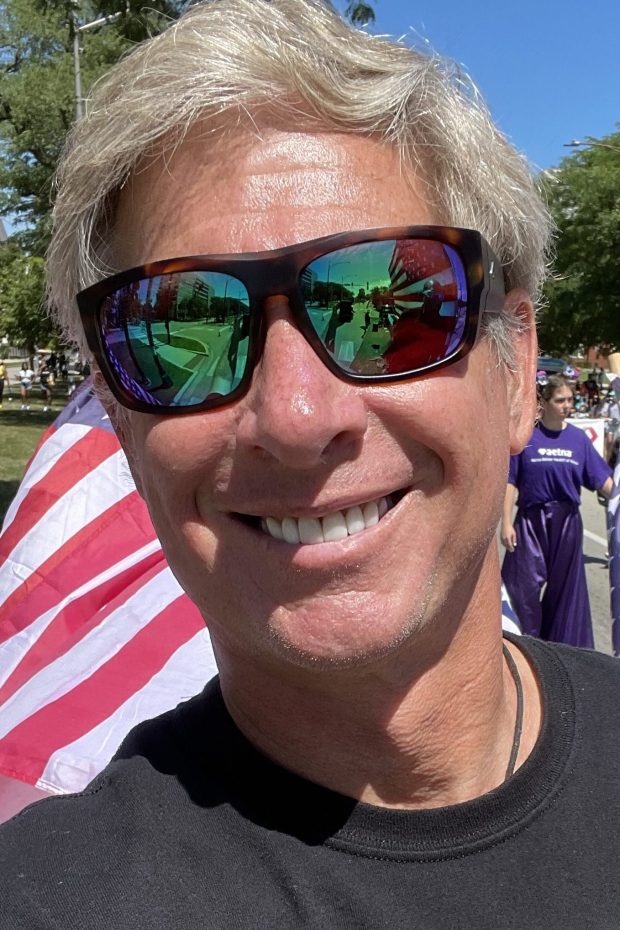
Harper is a CTU supporter who was one of just eight votes in the House last spring opposing legislation that would have barred CPS from making major changes to selective enrollment and charter schools, putting her on the wrong side of that critical issue in our eyes.
This is an overwhelmingly Democratic district, but Dwyer is to be applauded for giving voters a thoughtful alternative.
We endorse Sean Dwyer.
District 8
This is another bizarrely shaped district encompassing parts of Chicago’s Austin neighborhood and Oak Park, Berwyn, Forest Park, Broadview and other inner western suburbs. Democrat La Shawn Ford has represented the area since 2007. His opponent is Republican Leslie Collazo, a real estate agent.
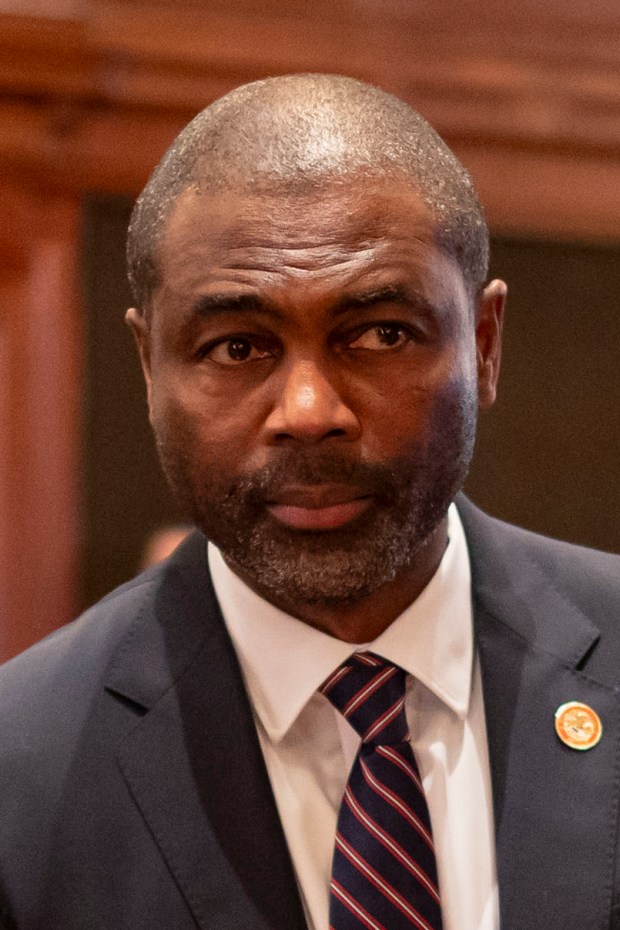
Collazo, a resident of North Austin, wants to end Illinois’ status as a sanctuary state and remove public funding support for migrants. Her focus on constraining government spending at the state and local levels is something we support.
Ford has been an able legislator for this district for many years. We don’t agree with his lack of commitment to reining in government spending, and most of his solutions to the pressing issues of today involve more taxpayer funding. But he has some practical ideas for providing low- and middle-income homeowners with property tax relief.
La Shawn Ford is endorsed.
District 13
Democrat Hoan Hyunh, a 35-year-old in his first term, is running for reelection after improbably winning this North Side seat in 2022. He faces Republican Terry Nguyen Le, 25, another young Vietnamese American whose family came to the U.S. as refugees before Le was born.
There are starkly different political philosophies to choose from here. For example, Le, 25, would reverse the SAFE-T Act and bring back cash bail, among a set of hard-line public safety positions. We think the debate over cash bail is essentially settled.
Hyunh is finding his way in Springfield, and while many of his progressive stances aren’t our cup of tea, he deserves time to establish a more extensive legislative record. And Le lacks experience.
We endorse Hoan Hyunh.
District 15
A rematch between incumbent Democrat Michael J. Kelly and Republican Mark Albers is before voters in the 15th, which includes Northwest Side neighborhoods of Chicago like Albany Park, Jefferson Park and Norwood Park as well as parts of Niles, Park Ridge, Morton Grove and Skokie. Kelly is a Chicago firefighter from Albany Park; Albers is a businessman from Morton Grove.
Kelly has spent his first full term in Springfield focused on modest bills affecting first responders. He’s a moderate Democrat largely in tune with the sensibilities of the district.
Albers emphasizes school choice and notes that Kelly didn’t preserve the Invest in Kids choice program, which Democrats allowed to lapse. We’re believers, too, in that program. Albers’ positions — reduction of property taxes and corporate income taxes in order to make Illinois more competitive with neighboring states — are where we believe state policymakers ought to focus as well. Without a friendlier business climate, state government’s revenues will remain static and needed investments in education and infrastructure will be much harder to make.
Mark Albers has our endorsement.
District 17
Since 2019, Democrat Jennifer Gong-Gershowitz has represented this north suburban district, centered in Glenview and including parts of Wilmette, Evanston, Skokie and Northbrook. Her GOP opponent is Jim Geldermann, president of Wireless.dev Corp., a software company.
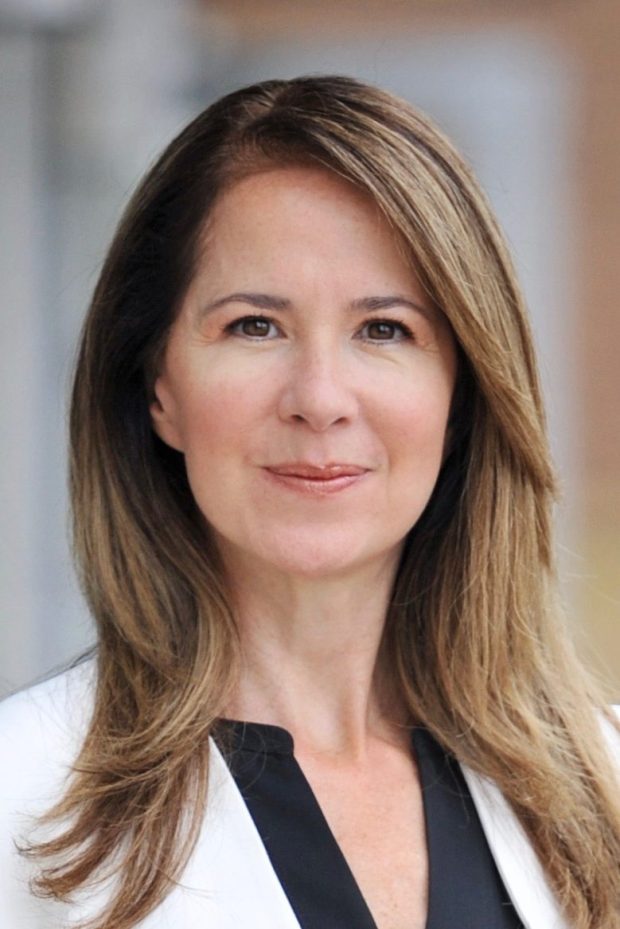
Gong-Gershowitz, 55, is among the leaders in Springfield on sane gun control legislation, including the state’s ban on assault-style weapons and a 2023 law that allows for lawsuits against gunmakers by victims of gun violence. She is a thoughtful Democratic voice on issues involving the influx of migrants in late 2023 and earlier this year, having been an attorney specializing in immigration law, among other things.
We appreciate her approach to the Chicago Teachers Union’s “demand” for more than $1 billion in additional funding. She says it “ignored both the realities of the state budget and how evidence-based funding works.”
Geldermann’s views, as posted on his website, are well to the right of his district and this board.
Jennifer Gong-Gershowitz is an excellent state lawmaker, and she is endorsed.
District 18
This North Shore district includes parts of Evanston, Wilmette, Kenilworth, Winnetka, Glencoe, Northbrook and Northfield. Democrat Robyn Gabel, 71, has represented the area since 2010 and serves as House majority leader, second in leadership to House Speaker Emanuel “Chris” Welch. For the second straight election, her opponent is Republican Charles Hutchinson, an attorney and chairman of the Wilmette Historical Preservation Commission.
We endorsed Hutchinson in 2022 and see no reason for a different opinion in this cycle. Gabel’s positions on matters fiscal and otherwise are reliably liberal and, while the state’s finances are in far better shape now than during the years when Gov. Bruce Rauner and House Speaker Michael Madigan battled, we believe frustration is building against the undeniably high tax bills to pay for state and local government in Illinois.
Hutchinson sees the need for belt-tightening in Springfield and has lots of specific ideas on where to cut costs. In his response to our questionnaire, he identified several state agencies that had seen outsized employee growth. That’s a good way to begin getting serious about costs.
We endorse Charles Hutchinson.
District 19
Democrat Lindsey LaPointe has represented this Northwest Side district since 2019. She is a thoughtful and hardworking lawmaker who isn’t afraid to tackle problems that many in her party would prefer to avoid.
We appreciate in particular her support for real ethics reform, embodied in her backing for a two-year period before retired or defeated state lawmakers can lobby their former colleagues. Even in post-Madigan Springfield, that’s a brave stance for a Democrat. She also is a strong advocate for significant governance changes to the various transit agencies serving the Chicago region as part of a package to address the impending $730 million funding cliff for mass transportation.
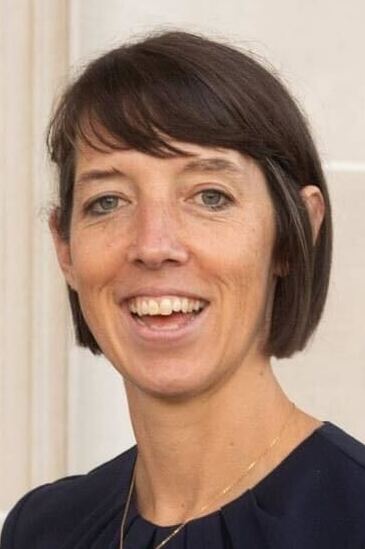
She even has specific suggestions for parts of the state budget to cut, another area most Democrats avoid.
Republican John Zimmers, a real estate broker, advocates for reducing the number of taxing bodies in the state — an excellent idea — but also calls for repealing the SAFE-T Act and abolishing the Chicago Teachers Union. We’re not fans of the CTU’s transformation into a political machine, either, but that’s not a realistic proposal.
We endorse Lindsey LaPointe.
District 26
Democrat Kam Buckner has represented this district since 2019. The district is one of the most strangely shaped in the region, snaking in a narrow strip from River East south along the lakefront and then shifting west to continue into Bronzeville, Woodlawn and South Shore.
His opponent is Republican Audrey Barrett, a registered nurse who is CEO of a company that provides private nursing services.
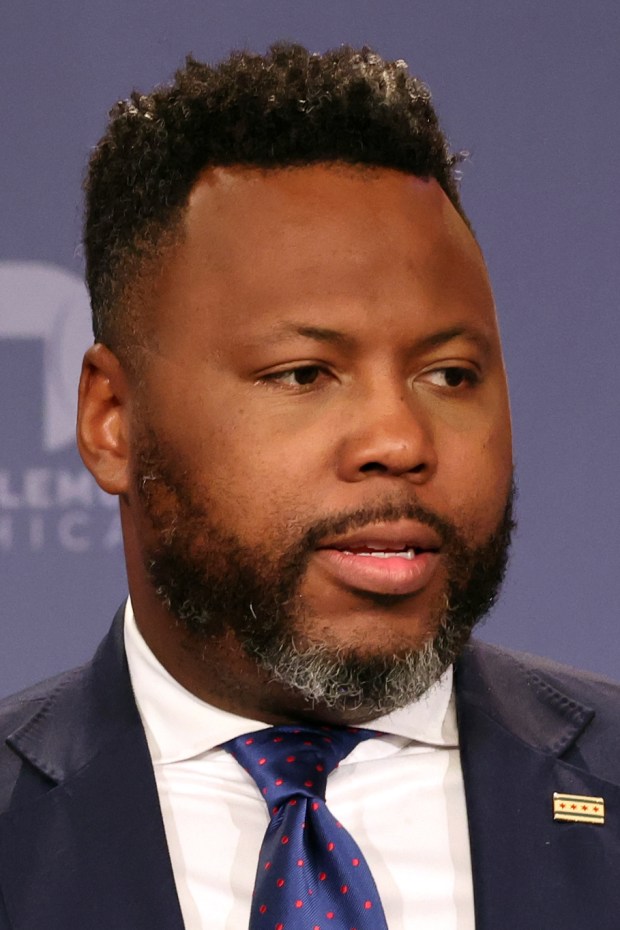
A former mayoral candidate in Chicago, Buckner counts himself as a progressive, but he’s frequently been at odds with the high-tax approach taken by Chicago Mayor Brandon Johnson. He’s been a thoughtful critic, too, of how the Chicago Transit Authority has been run. With Springfield set to consider significant changes to management of mass transit in the region, Buckner will be an important voice in that effort.
We struggled to reach Barrett, who doesn’t appear to be running an aggressive race.
Kam Buckner is endorsed.
District 30
Since 2003, Rep. William “Will” Davis, 56, has represented this south suburban district, which includes all or parts of Dolton, Homewood, Flossmoor, Harvey, Midlothian and Olympic Fields. He faces a rematch against Republican Patricia Bonk, 67, a registered nurse from Midlothian who serves on that village’s Library Board.
Davis is best known as one of the leading advocates for evidence-based funding for schools, a policy Illinois adopted in a landmark 2017 law that changed how Illinois allocates money to public school districts around the state. He says more state funding for schools under that approach will help drive down property taxes, which are inordinately high in the Southland.

Bonk wants more direct relief to low- and middle-income homeowners who increasingly are being forced to sell because they can’t afford the taxes. “It’s become an American nightmare instead of an American dream,” she recently told the Tribune.
We endorsed Bonk last cycle and think she’s a more compelling choice in this election, given the soaring tax bills that in recent months have hit this district’s constituents.
Patricia Bonk gets the endorsement.
District 31
Democrat Michael Crawford, who ousted longtime incumbent Mary Flowers in the primary with massive help from House Speaker Welch, faces Republican Carl Kunz, a retired chief compliance officer in the financial services industry from Hickory Hills.
This is a matchup where the circumstances of how both candidates were nominated is the most interesting aspect of the race. Crawford was Welch’s recruit to rid the speaker of a member of his caucus he considered troublesome, and Welch did so with union donations that raised questions about what he would give those unions in return. Kunz was one of several GOP candidates who were slated by the party after no one ran in the primary, and Springfield Democrats passed a law to bar the practice of post-primary slating. Illinois courts blocked the change in the law.
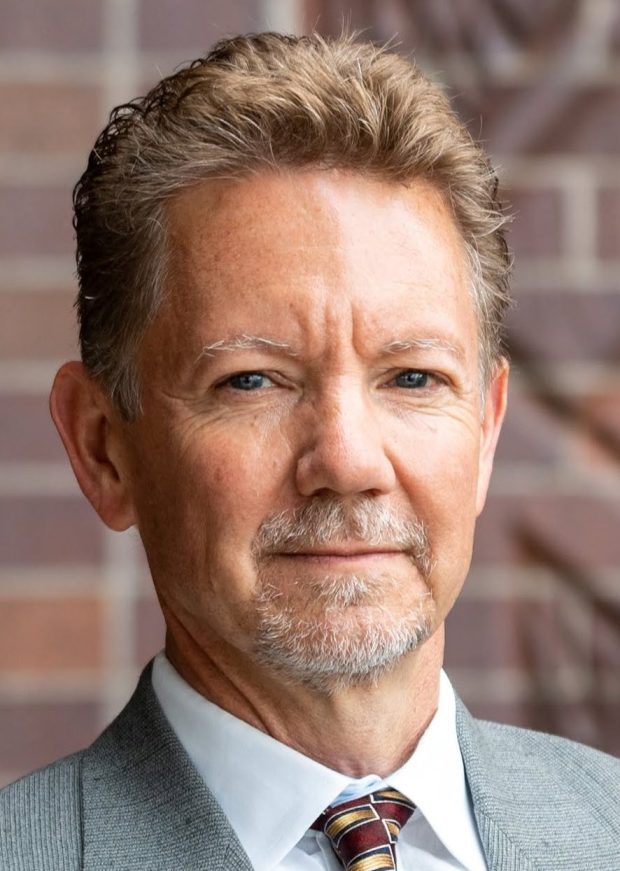
So here we are. The positions of Crawford, CEO of the nonprofit Chicago School, are conventionally Democratic, emphasizing “full funding” of schools, for example. Kunz’s policies, by contrast, are in line with many Republicans. For example, he backs reinstating cash bail, which the SAFE-T Act eliminated, and halting all spending on undocumented immigrants.
This is an intriguing district, given that it represents areas as disparate as South Side neighborhoods like Englewood, Wrightwood and Auburn Gresham and parts of southwest suburbs like Oak Lawn, Evergreen Park and Hickory Hills. We’re not fans of how Crawford got the Democratic nod, and Kunz would be a solid choice.
Carl Kunz is endorsed.
Submit a letter, of no more than 400 words, to the editor here or email letters@chicagotribune.com.



